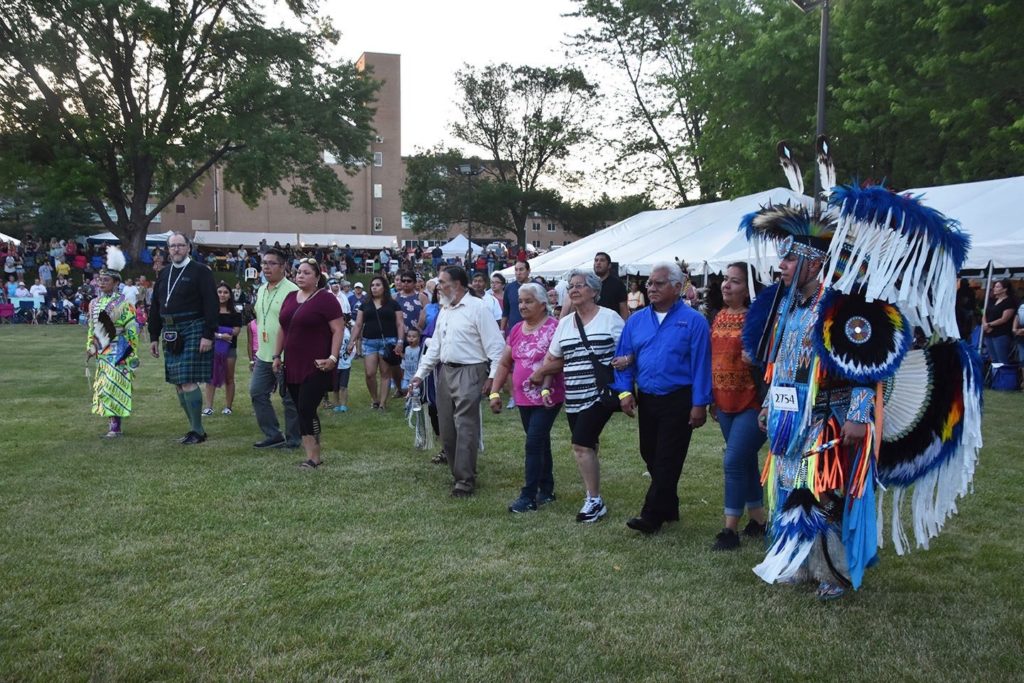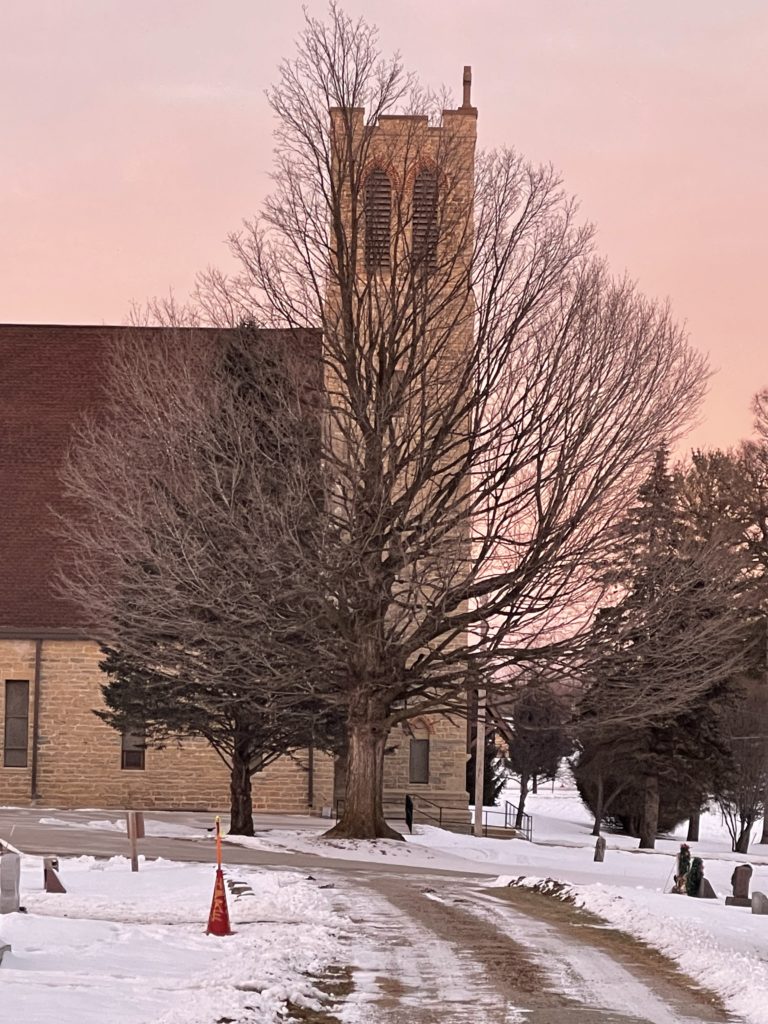by The Rev. Rodger Patience
This year’s Winter Talk, the annual gathering of Indigenous people from across The Episcopal Church, was anything but traditional.
Forced by pandemic concerns to move entirely online just one week before the event, Winter Talk became a powerful sharing of Indigenous issues with The Episcopal Church’s leaders – Presiding Bishop Michael Curry and President of the House of Deputies Gay Jennings – as well as members of dioceses in Province IX (Central and South America), and a wide audience of livestream viewers.
The two-day gathering opened with prayers, Bible study from “A Disciples Prayer Book” and greetings from hosts at the Church of the Holy Apostles, the oldest Native mission of The Episcopal Church, located on the Oneida Nation near Green Bay, Wisconsin.
Oneida Nation Chairman Tehassi Hill offered the Oneida Thanksgiving Address and his own words of welcome, and Tribal Councilwoman Jenny Webster, a member of Holy Apostles, shared a brief history of the Oneida people in New York and Wisconsin. I then shared reflections on the 320-year relationship between the Oneida people and The Episcopal Church, symbolized by what historian and parishioner Gordy McLester calls a “silver covenant chain linking two traditions.”
The conversation took a somber turn as we viewed “Native No More,” a video produced by the Office of Indigenous Ministries to highlight issues surrounding Indigenous boarding schools. In addition, leaders like Kirby Metoxen, an Oneida Tribal Council member and parishioner, and Rev. Lauren Stanley, canon to the ordinary of the Episcopal Diocese of South Dakota, shared their stories of working to bring home children buried a century ago at Carlisle Indian Industrial School in Pennsylvania.
A new video on the Doctrine of Discovery, also produced by the Office of Indigenous Ministries, stirred the whole gathering. Presiding Bishop Curry spoke of “sacred remembering”, saying “what has been dis-membered by violence against Indigenous people must be re-membered by the work of reconciliation.” President Jennings reflected on the loss of her own child and the grief that remains. She added that “to come to grips with our own church’s participation in that will take perseverance and tenacity on our part. And … both of us are deeply, deeply committed to doing what needs to be done.”
The final day was no less emotional, but with a focus on the future training, well-being, and sustainability of Indigenous leaders and congregations. Rev. Mary Crist of the Indigenous Ministries Office and Julie Lytle of Bexley-Seabury Seminary described exciting new theological education programs designed around the specific needs of Indigenous leaders and congregations, much of it funded by a grant from Trinity Church Wall Street. Forrest S. Chuch and Rev. Michael Carney introduced their new book, A Native Way of Giving, which addresses Indigenous ministry sustainability.
We closed with Holden Evening Prayer and Kirby Metoxen’s singing of the “Te Deum” in the Oneida language, which has been sung at every bishop’s ordination in the Episcopal Diocese of Fond du Lac since the Oneida arrived in Wisconsin 200 years ago.
It’s our hope that all our relatives will be able to join the song in-person at next year’s Winter Talk, which God willing will be held in Oneida Jan. 14-17, 2023.
The Rev. Rodger Patience is vicar of the Church of the Holy Apostles in Oneida, Wisconsin. You can find Holy Apostles on Facebook and Instagram @holyapostlesoneida.

